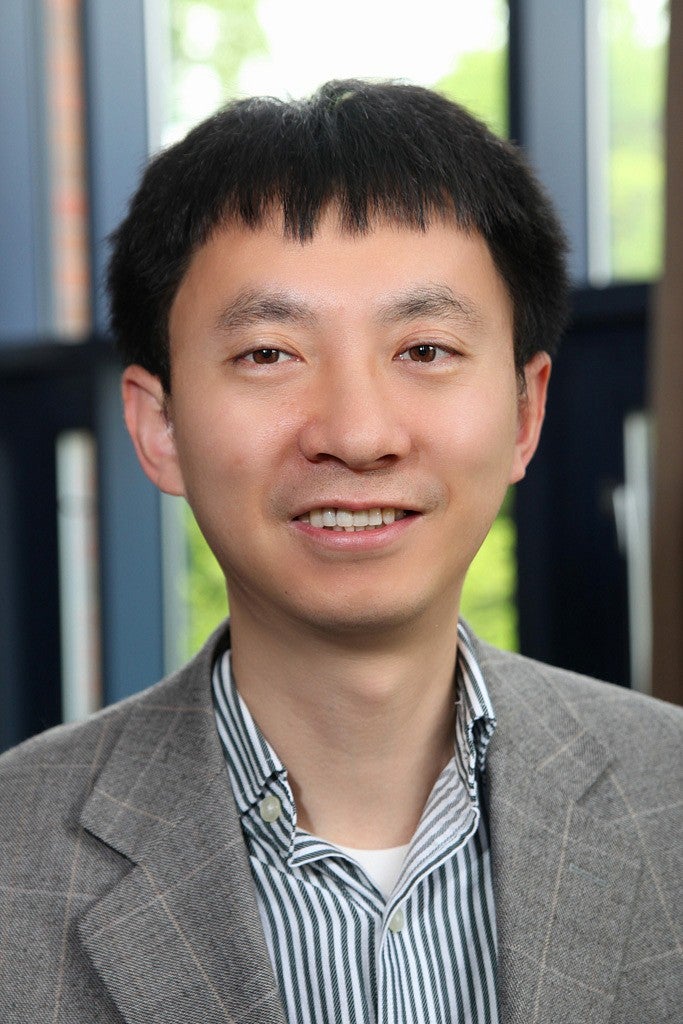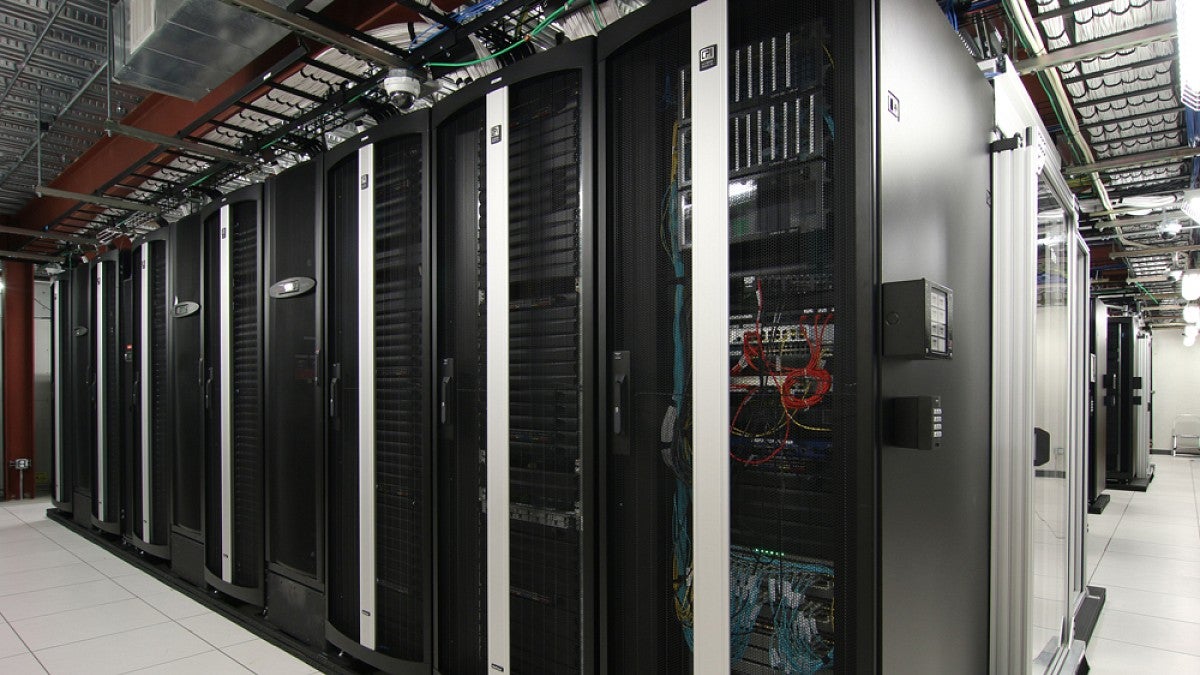Imagine an application that could translate speech in real time, including slang words, without any grammatical errors. International travel would become a breeze.
That’s just the kind of innovation that could be fueled by a new UO research center that will leverage collective wisdom from academia, industry, governments and the UO’s High Performance Computing Research Core Facility. Known as the Center for Big Learning, it will be located on the third floor of Deschutes Hall.
The recently launched center combines artificial intelligence, big data and large-scale “deep learning” — a class of machine learning algorithms that allow computers to perform operations that usually require human thought.

“The center will improve deep learning technologies for a broad variety of applications,” said Dejing Dou, a professor in the UO’s Department of Computer and Information Science and the center’s founding director. “It will catalyze diverse expertise of faculty members, students, industry partners and federal agencies to create state-of-the-art deep learning methodologies.”
The center was launched Feb. 1 with a five-year, $750,000 grant from the National Science Foundation’s Industry-University Cooperative Research Center Program. Founded in 1973, the program develops long-term partnerships among industry, academia and government.
The partnerships will promote research programs of mutual interest, contribute to the nation's research infrastructure base, enhance the intellectual capacity of the engineering or science workforce through the integration of research and education, and facilitate technology transfer.
“Our center will have broad transformative impacts on computational technologies, education and society,” Dou said. “We will provide training for new scientists and graduate students, as well as a rich environment for cross-disciplinary engagement.”
As a principal investigator, Dou will lead a research team that advances the center’s core mission of pioneering research and development in powerful, deep-learning algorithms, efficient intelligent systems and novel applications.
Allen Malony, a professor in the Department of Computer and Information Science, serves the co-director of the center. Department head Joe Sventek chairs the University Policy Committee for the center.
Image and facial recognition are frequently cited examples of potential applications for deep learning technologies, but researchers say the breadth of potential research areas is vast.
“I am excited to help our faculty build out the UO’s first Industry-University Cooperative Research Center Program site and delighted that our investment in the UO’s High Performance Computing Research Core Facility helped our faculty receive this award,” said David Conover, UO’s vice president for research and innovation and a member of the University Policy Committee for the center. “The facility will allow UO to collaborate in artificial intelligence and big data internationally at the highest level. We look forward to working with more Industry-University Cooperative Research Center sites in the future."


